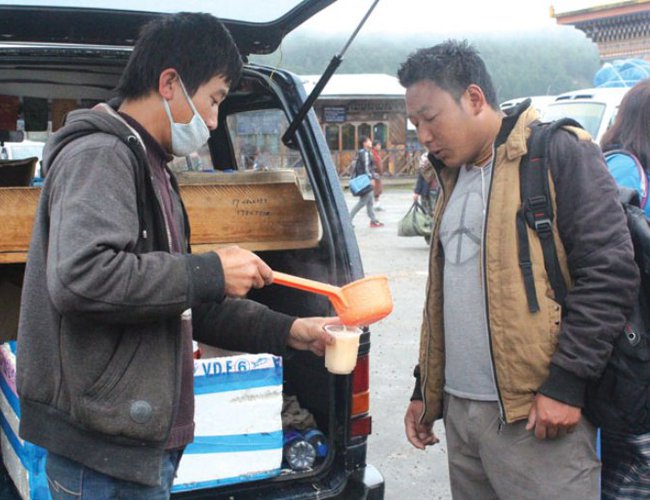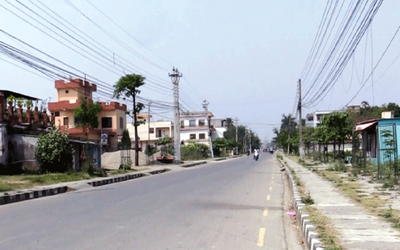
By Ding Gang
To many Chinese people, Bhutan is beyond doubt a land of felicity and promise. The tiny Himalayan kingdom boasts a lofty happiness index. Its fourth king Jigme Singye Wangchuck coined the well-known concept of "Gross National Happiness" in the 1970s.
However, in the Human Development Report released by the UN every year, Bhutan ranks low out of more than 190 countries. But it usually tops the happiness index in Asia. It seems that the Bhutanese people are living happily in an impoverished environment.
Are the people in the landlocked country really bathing in tremendous happiness?
A Nepal trip five years ago gave me a more in-depth understanding of this land. The Bhutanese people are living in a state of bliss, however, it is with conditions attached.
During that trip to Nepal, in the morning I always saw minivans driving into the courtyard next door and taking away men and women, seniors and young people wrapped in tippets. The vehicles were from the UN High Commissioner for Refugees.
From the rooftop on my friend's house, I could see these people were queuing against a wall, waiting anxiously for something. I took a zoom photo of a girl who clutched a guardrail. I could see a vigilance in her eyes not right for a kid her age.
My friend told me these people were refugees from Bhutan, mostly Hindu ethnic Nepalese. They were waiting at this refugee center to be transferred to Europe, Oceania or North America.
Bhutan is a Buddhist country, the only one on the southern slopes of the Himalayas. Sikkim used to be its companion kingdom but was later annexed by India.
The Indian military deposed the king of Sikkim in 1975 through a so-called coup and then led a referendum. At that time, Hindu Nepalese immigrants had become the majority of the population, and it was easy to imagine the result of the vote.
Afraid of repeating Sikkim's fate, Bhutan has expelled the ethnic Nepalese within its borders. As many as 100,000 deported people now live in refugee camps in eastern Nepal.
Reluctant to accept refugees from Bhutan, Nepal turns them over to the UN refugee agency. Fortunately, there are countries willing to lend a helping hand.
In total, the refugees account for nearly one seventh of the Bhutanese population. They are probably the unhappiest people if measured by the happiness index.
From a geopolitical perspective, a small and weak nation like Bhutan has great difficulty escaping the fate of being absorbed by it neighbors, given its closeness to a strong country embracing different religions. In history, it was exactly this area where the Hindus and the Muslims were prevented from expanding their sphere of influence.
Why does India allow a Buddhist territory to exist next door to it? This is mainly because Bhutan is a UN member and has diplomatic relations with many countries, making it difficult for India to swallow it up like India did to Sikkim.
India, nonetheless, exerts effective control over Bhutan's diplomacy, security and economy. India has long used Bhutan as a frontline countering China and a cushion between the two Asian powers, especially after the Sino-Indian Border Conflict in 1962.
Bhutan is no Shangri-La. Given China's rise and consequent growing influence upon South Asia, and with the development and opening up of Tibet, India is beset with more worries and misgivings, which is making it hard for Bhutan to maintain its peace and tranquility.
The author is a senior editor with People's Daily, and currently a senior fellow with the Chongyang Institute for Financial Studies at Renmin University of China. dinggang@globaltimes.com.cn Follow him on Twitter at @dinggangchina
Source: Global Times
- TANAHU HYDROPOWER PROEJCT: A Significant Achievement
- Apr 15, 2024
- AMBASSADOR HANAN GODAR: Sharing Pain With A Nepali Family
- Mar 30, 2024
- VISIT OF KfW AND EIB TO NEPAL : Mission Matters
- Mar 25, 2024
- NEPAL BRITAIN SOCIETY: Pratima Pande's Leadership
- Mar 24, 2024
- NEPAL ARMY DAY: Time To Recall Glory
- Mar 15, 2024















